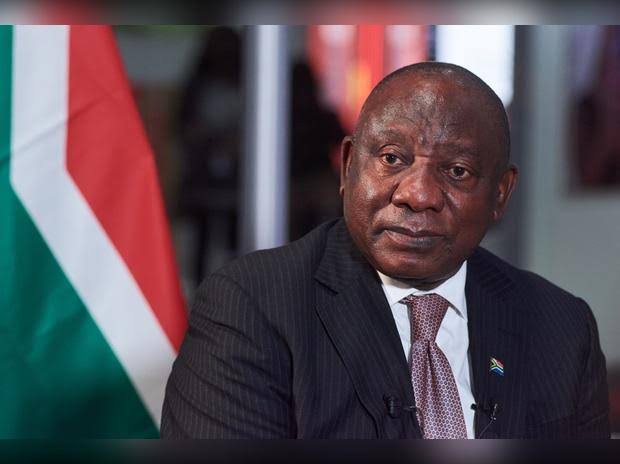
The Intersection of AI and Energy Policy: Tackling South Africa’s Challenges Pre-Elections
While increased demand for energy is a direct consequence of increasing development pressures and urbanization, South Africa’s challenges are exacerbated by other factors.
Leading up to the 2024 general elections, South Africa’s energy crisis lingers as a huge dent to the achievements of the Cyril Ramaphosa administration. Embedded in the energy challenge that South Africa faces are political, economic, sustainability and social/humanitarian considerations for resolution. Since 2022, the nation has witnessed heightened electricity cuts and extended blackouts at stage 6. These have had an extended impact on industry, employment, and access to public services, and severely impacted development. This has not only affected the public sentiments towards the incumbent but also towards the African National Congress (ANC).
While increased demand for energy is a direct consequence of increasing development pressures and urbanization, South Africa’s challenges are exacerbated by other factors. The contributing factors to the energy crisis are the corruption within Eskom, poor infrastructure security and investment, technological advancement, the work-from-home culture (since the COVID-19 pandemic), and overreliance on coal. Moreso, there are major sustainability concerns regarding the about 87% contribution of coal to electricity generation. Global concerns regarding greenhouse gases and carbon-intensive development have continued to lead conversations on the future of energy in South Africa. While climate change-resilience is a huge investment driver, South Africa’s distressing energy situation might make embracing alternative energy a difficult subject especially as the nation embraces new technological advancements for smart cities, the internet of things, remote work, Artificial Intelligence (AI), and digital economies.
While increased demand for energy is a direct consequence of increasing development pressures and urbanization, South Africa’s challenges are exacerbated by other factor
The political landscape of South Africa is charged with different and divergent views on how the government should tackle the energy crisis. The ANC has been widely criticized for mismanagement which has also manifested in poor infrastructure investment, growing unemployment, slow transition from coal, and failing maintenance. Meanwhile, some parties like the Democratic Alliance (DA) continue to advocate democratizing energy generation. Some critiques of this approach include the state capture and cynicism towards privatization of state infrastructure as popularized by the Economic Freedom Fighters (EFF). While acknowledging the social and economic impact of blackouts, each side presents a different set of answers. The DA and (Multi-Party Coalition) MPC place more importance on a stable grid to reduce disruptions, while the ANC is more concerned with electrification. The EFF’s stance is less evident.
This divergence in the stance of each political party on the path towards a better and just South Africa is underpinned by several other racial, social, and economic challenges. South Africans going to the polls in the April election are not only concerned about the energy crisis but the post-apartheid state of the nation. In the wake of the fourth industrial revolution (4IR), solutions must be agile, adaptive, and inclusive. In South Africa, voter sentiments are increasingly driven by global concepts of the future of work, globalisation, Artificial Intelligence, and remote work. Considering the intricate role that the internet and digital economy play in development and tackling unemployment, it is critical for the government’s approach to demonstrate an awareness of the changing landscapes.
AI has immense potential to transform information, data gathering, policy making, and work opportunities. Both on a micro and macro level, the use of AI to accelerate research, data mining, decision-making, and policy formulation has to be leveraged before, during and after the 2024 general elections. While it might be difficult to address all the masses of conversations and sentiments around the situation of energy in South Africa with a single policy framework, the government’s investment in research, think tanks, and action groups that maximize AI capabilities could accelerate knowledge production and policy formulation. Furthermore, public dialogue can be tailored to the most critical issues. For example, there have been overall concerns regarding the silence of the Cyril Ramaphosa administration regarding the review of the IRP in President Ramaphosa’s recent State of the Nation Address. While there are way too many issues that the government needs to address, the use of Artificial Intelligence solutions can prove effective in creating a laser focus on the most critical issues. Case studies like Singapore’s Centre for AI (SCAI) and Finland’s Sitra Fund can provide a comparative perspective on using AI to tackle energy challenges, public sentiments, and policy formulation needs.
In conclusion, the South African government can governments can leverage AI to Analyze vast amounts of data to identify key trends and public sentiment regarding the energy crisis. AI tools can Model complex scenarios, Identify knowledge gaps, and simulate the impact of various policy options on factors like energy production, blackouts, and job creation. These can inform the direction of public dialogue which would inadvertently improve public sentiments.
___________________________
Oladeji Jonathan D (PhD) is a Sixteenth Council Fellow



